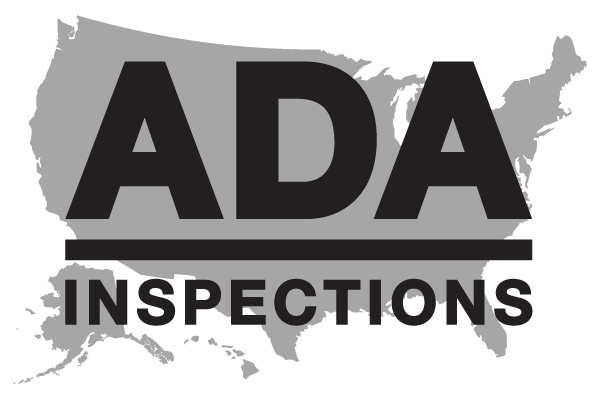ADA Lawsuits Dismissed for Lack of Evidence
Seyfarth Shaw Logo
Three ADA lawsuits were recently dismissed for lack of evidence. An article by Eden Anderson and edited by Minh Vu and Kristina Launey at Seyfarth Shaw concludes that the United States Courts for the Ninth Circuit (Ninth Circuit) has dismissed three disability access cases because the complaints did not provide specific barrier allegations of unlawful conditions (evidence) regarding ADA compliance. If this trend continues beyond the Ninth Circuit individuals with ADA compliance complaints may have to provide greater details in their legal filings across the country. Gone are the days of vague and nondescript drive-by lawsuits for ADA compliance.
The Ninth Circuit covers the entire west coast of the United States, plus Alaska, Hawaii, Guam, and the Northern Mariana Islands. See the graphic below.
Geographic Boundaries of US Courts
According to the article, over the years ADA Title III complaints filed by the plaintiff’s bar have gotten progressively more vague with respect to the barriers alleged. This is no coincidence. Some lawyers have stated outright that they keep those allegations vague so businesses cannot easily fix the alleged barriers to moot the lawsuits.
The Ninth Circuit is putting an end to this strategy. In a trilogy of decisions just issued, it made clear that the more stringent pleading standard established in the Iqbal/Twombly cases still applies in determining whether a disability access plaintiff’s allegations state a claim for relief. All three cases involved the same plaintiff—Brian Whitaker—a serial filer of disability access lawsuits who uses a wheelchair for mobility.
In the first case, Whitaker v. Panama Joes, Investors, LLC, Whitaker alleged he encountered inaccessible “dining surfaces” at a restaurant and that the restaurant also lacked “accessible restrooms” and “accessible paths of travel in the patio area.” He alleged he was deterred from returning to the restaurant because of these alleged barriers.
The Ninth Circuit concluded these allegations were sufficient to establish Whitaker’s standing to sue, but not to state a claim for relief under Title III of the ADA. Specifically, no facts were alleged to identify the “specific deficiencies in the dining surfaces,” and there was no description of “how the restrooms were inaccessible” or “which paths of travel in the patio area were accessible.” Without such specificity, the restaurant was not on notice of the claims, and the allegations did not satisfy the Iqbal/Twombly pleading standard to sufficiently state a claim and avoid dismissal of the complaint.
The second case, Whitaker v. Body, Art, and Soul Tattoos Los Angeles, LLC, involved a tattoo parlor which Whitaker alleged lacked “accessible sales counters” causing him “difficulty and discomfort.” The Ninth Circuit again found standing, but explained the allegations were too “vague” to state a claim for relief because the “specific deficiencies in the sales counters” were not identified. It affirmed the district court’s granting of the motion to dismiss on that basis.
In the third case, Whitaker alleged he encountered “inaccessible service counters” at an auto dealership which caused him “difficulty and discomfort” and which deterred him from returning. The Ninth Circuit again found standing, but affirmed dismissal of the complaint. The court stated that under Iqbal/Twombly, to state a claim for relief, Whitaker needed to allege “well pleaded facts, not legal conclusions.” Yet his complaint “failed to answer the basic questions: Were the service counters too low? Or too high? Were they positioned in an area that was inaccessible for another reason?” Without this detail, the complaint failed to state a claim for relief and was properly dismissed. The Ninth Circuit soundly rejected Whitaker’s plea for “more lenient treatment,” concluding, “we have never held that civil rights litigants are exempt from satisfying the pleading standard demanded by Iqbal and Twombly.”
In each of the cases, Whitaker stood on his allegations and did not amend his complaint to add the requisite factual details—even though the district courts permitted him to do so. While one might wonder why Whitaker chose that route, his arguments on appeal furnish the answer and some amusement. Whitaker took the position that providing details about the nature of alleged access barriers would provide a defendant with sufficient information to remediate and moot his ADA claims. The Ninth Circuit was not persuaded, responding that “defendants should be encouraged to remove barriers from their establishments. This is an important objective of the ADA.”
SUMMARY:
As this trilogy of cases makes clear, plaintiffs and lawyers in disability access cases must provide sufficient factual details to place defendants on notice of the nature of the barriers they allege they personally encountered and which allegedly denied them of full and equal access in order to state a claim. Gone are the days of vague and nondescript drive-by lawsuits for ADA compliance. Keep in mind that the US Department of Justice has stated that there only needs to be one issue for which a facility or entity is not compliant with the ADA laws in order for a complaint to be valid and proceed. Also, once a single valid complaint is established, a complete list of the subject location’s ADA violations affecting a Plaintiff, and the remedial measures necessary to remove these violations, may require a complete on-site inspection for ADA compliance by the Plaintiff’s representatives pursuant to Federal Rule of Civil Procedure 34. This Procedure 34 inspection should be conducted by an individual or entity that is educated, trained, and experienced in ADA compliance inspections.
…………………………………………………………………………………………………………………………………………………………………………..



